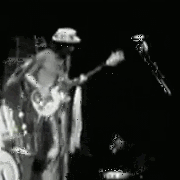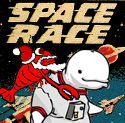|
I’ve been a “frosty” or “pagophile” for many years and knew I wanted to discuss the subject when I joined SA. Here we can discuss fiction and non-fiction on the subjects of polar exploration, maritime exploration at high (and low) latitudes and exploration of tundra and arctic regions. Perhaps there should be a separate thread for mountaineering fiction/non-fiction (something that comes up on the Everest climbing thread). I've read a few books on mountaineering but I think a goon with real experience would be a better poster to start a mountaineering book thread. Goons can recommend titles and discuss theories and figures from polar exploration history in this thread. To start, here are some classic titles that are worth reading. I have starred the ones I found particularly interesting and enjoyable: Scott v. Amundsen: If you didn’t already know, this is a very divisive topic. I’m sure the pro- and anti-Scott camps will make their presences known here in this thread. There is a very noticeable divide between pro- and anti-Scott writers. The first important debunker of Scott is Roland Huntford. His classic Scott & Amundsen* violently divided public opinion. You better not speak Huntford’s name aloud in the Scott Polar Research Institute at Cambridge University. Pro-Scott books include: Diana Preston’s A First-Rate Tragedy and Ranulph Fiennes’s Scott. Firsthand accounts include: Scott’s Journals* recently published unexpurgated (relatives removed unflattering comments before the original publication) and Apsley Cherry-Garrard’s truly amazing The Worst Journey in the World* (about a polar winter journey to an inaccessible coastal region by sled in unbelievable temperatures to… collect penguin eggs). Amundsen’s own journal is rather dry and unexciting. Guess he just didn't take enough chances and kill enough men to make for a good account…. Polar exploration: There are Huntford’s biographies of Ernest Shackleton* and Nansen*. For the North Pole, there are accounts by Peary and Cook. Lansing’s description of Shackleton’s boat journey from Elephant Island to South Georgia is one of the most amazing stories you’ll ever read. A firsthand account by Frank Worsley is also available but I haven’t read it. Fergus Fleming’s Barrow’s Boys covers British naval attempts on the North and South Poles. A goodish survey but the author’s flippancy will bug some readers. Francis Spufford’s I May be Some Time discusses the cultural impact of the Scott disaster on the British. There is also a new book out called In the Kingdom of Ice, which I have ordered and will report back on. Northwest Passage: One of the central stories of heroic failure must be the Franklin expedition of the 1850s, a disaster of colossal proportions, which led to the death of every single man and officer on two large ships. A forensic investigation including the exhumation of frozen bodies from the expedition are in Beattie and Geiger’s Frozen in Time*, which includes photos of the exhumed sailors. Cookman’s Ice Blink presents a specific “solution” to the disaster. Geiger and Beattie also tackled the disappearance of British explorer Knight in Hudson Bay in Dead Silence*. So, finish your pemmican, strap on your snowshoes and let’s get started…. Links now deleted as you all know how to search for and order books online. Reading list: This list will be added to as we go on. “*” denotes a book I’ve read and recommend and “+” denotes a book the consensus of posters here recommend. Golden Age of Polar Exploration (non-fiction) (1890-1920) Roland Huntford, Scott & Amundsen*, Shackleton*, Nansen* Ranulph Fiennes, Scott and Race to the Pole The First Crossing of Greenland and Farthest North, both by Fritdjof Nansen+ Diana Preston, A First Rate Tragedy Apsley Cherry-Garrard, The Worst Journey in the World* RF Scott, Journals* Roald Amundsen, Conquering the South Pole Ernest Shackleton, South*+ Alfred Lansing, Endurance* Frank Worsley, Shackleton’s Boat Journey Robert Peary, The North Pole Frederick Cook, My Attainment of the North Pole David Roberts, Alone on the Ice* (Mawson) Fergus Fleming, Ninety Degrees North Hampton Sides, In The Kingdom of Ice (Jeanette/De Long 1879 expedition)  General Polar Exploration (non-fiction) Alec Wilkinson, The Ice Balloon (Andree's balloon voyage to the N. Pole) Fergus Fleming, Barrow’s Boys  Ranulph Fiennes, Cold and Mind over Matter  Francis Spufford, I May be Some Time* (Fiction) HP Lovecraft, At the Mountains of Madness*  Northwest Passage (including Franklin) (non-fiction) John Franklin, Thirty Years in the Arctic Regions Beattie & Geiger, Frozen in Time* (Franklin) and Dead Silence* (Knight) Scott Cookman, Ice Blink (Franklin) Anthony Brandt, The Man Who Ate His Boots (Franklin) Martin Beardsley, The Man Who Ate His Boots (Franklin) (yes, the authors both used the same title…) Glynn Williams, Arctic Labyrinth*+  (Fiction) Dan Simmons, The Terror+ (Franklin) Sub-Arctic Marine Exploration (non-fiction) Georg Wilhelm Steller, Journal of Voyage with Bering Valerei Albanov, In the Land of White Death Robert A. Bartlett, The Last Voyage of the Karluk+ William Laird McKinlay, Karluk: The Great Untold Story of Arctic Exploration (Fiction) Poe, The Narrative of Gordon Arthur Pym*  Carsten Jensen, We, The Drowned Canadian & Alaskan wilderness writing (non-fiction)   Barry Lopez, Arctic Dreams*  Sam Keith & Dick Proeneke, One Man's Wilderness Jon Krakauer, Into The Wild*+ John McPhee, Coming Into the Country Dan O'Neil, Land Gone Lonesome Sci-fi/dystopian John Christopher, The World in Winter/The Long Winter* Josef K. Sourdust fucked around with this message at 23:36 on Dec 16, 2015 |
|
|
|

|
| # ? Apr 19, 2024 05:33 |
|
Does The Terror by Dan Simmons count? It's a complete reimagining of the Franklin Expedition, but it was so detailed and interesting, and covered SO MUCH of the rigors of arctic life for the explorers, with the constant threat of frostbite, scurvy, etc., that it made me interested in reading something else about these brave pioneers.
|
|
|
|
I don't fully understand--do these have to be books about Arctic exploration or can they just take place in really cold climates? Also, what about Antarctic exploration? How come that was left out of the thread title? I'm sense some regional favouritism here. (Fuuuuuck, I think I have a few Shackleton books in storage--I've been meaning to get around to them. Might have to make a trip out there and dig around).
|
|
|
|
Yes,I think the Simmons book definitely counts. I heard about it but was reluctant to try it because it had some supernatural element. Is that right? Personally, I enjoy horror fiction but I find the Franklin mystery so amazing that I think it doesn't need that extra element. But each to their own taste. Was the book good?Blind Sally posted:I don't fully understand--do these have to be books about Arctic exploration or can they just take place in really cold climates? Also, what about Antarctic exploration? How come that was left out of the thread title? I'm sense some regional favouritism here. Well, in the OP Scott, Shackleton and Amundsen are all mentioned, so yes, Antarctic exploration definitely counts in this thread. The only reason I didn't put "Arctic/Antarctic" in the thread title was that it already had a "/" and it was starting to look like a multiple choice question. I guess we can talk about any snow-related fiction/non-fiction but steer clear of mountaineering because that is a specific genre with a particular audience/terminology/etc distinct from polar/snow writing. I guess we can also cover Inuit/Eskimo/Canadian First Nation writing, if it doesn't veer too far off topic. Edit: On the subject of mountaineering writing, there is a natural overlap between the problems that high-altitude/ice climbers have and what polar explorers face. So we are apt to find that posters are going to relate to mountaineering writing. Apart from jargon/audience differences, it would be best to avoid mountaineering in this thread because it is likely to swamp polar writing, as there is so much good and accessible mountaineering writing. I'm not saying there is a lack good polar writing though. Relevant images welcome! Josef K. Sourdust fucked around with this message at 19:25 on Aug 3, 2014 |
|
|
|
Ha, yeah. I was mostly being facetious. But you should use "Inuit", as "Eskimo" is viewed as a derogative by many people in the region.
|
|
|
|
We, The Drowned by Danish author Carsten Jensen belongs here I think. The book is not explicitly about the Arctic - it's a novelized history of a Danish sea-faring town over three generations (1848-1945) and the story runs all over the world - but many parts of it take place in Arctic settings and there are plenty of creepy passages involving boats stranded in ice and whatnot. Also, the title is very literal, while the book focuses on specific characters throughout, it is narrated by the collective body of people from the village who have perished by drowning over the years. It's very good.
|
|
|
|
I just started reading Journal Of A Voyage With Bering: I honestly just picked it up, so it's a crazy coincidence that this thread was posted at this time. Once I'm a little more into it I'll post about it. It's basically just the translated journals of Bering's botanist/zoologist, Georg Wilhelm Steller, a German who worked in Russia.
|
|
|
|
I always recommend Glyn Williams' Arctic Labyrinth: The Quest for the Northwest Passage and Anthony Brandt's The Man Who Ate His Boots: The Tragic History of the Search for the Northwest Passage. Both extensively go into Franklin, but both are pretty thorough histories of surprise, surprise, the Northwest Passage. Williams' is slightly more riveting and has some excellent stuff about Frobisher and Ross and goes a bit further back than Brandt. Though they cover a lot of the same ground, the approach is different. Brandt looked at Franklin from more of a family perspective. Williams was more statistical. Actually, there were survivors of Franklin, but I'm cheating a bit. Some men were sent back on other boats before they hit Canada.
|
|
|
|
A mountaineering thread would be great! But I'm only an armchair mountaineer.  I read Alone on the Ice (1911-14 Australasian Antarctic Expedition) last year and I have mixed feelings about it. I enjoyed the segments on Mawson a lot but the book suffered from way too many things going on at once. Huskies are the Redshirts of the Antarctic it seems.
|
|
|
|
Blind Sally posted:But you should use "Inuit", as "Eskimo" is viewed as a derogative by many people in the region. Yeah, I was aware of that. Basically, when discussing books I use the terminology in the book and never "retro-fit" modern terms in discussion. So if the book says "Eskimos" then I say the same. I am reading Barry Lopez's Arctic Dreams (1986) (report later) and he uses "Eskimo". Perhaps that was the changeover period re Eskimo-Inuit. In general I would say "Inuit" Earwicker posted:We, The Drowned by Danish author Carsten Jensen belongs here I think. I think we should include anything that has a substantial section set in polar seas. That means we can talk about The Narrative of Gordon Arthur Pym by Poe, which is a strange and fascinating book, Poe's only novel. Edit: And it also means we can discuss Lovecraft's At the Mountains of Madness, which was a sequel to Poe's novel, inspired by Golden Age accounts of polar exploration and extended the Cthulhu mythos.  sperging ahead... sperging ahead...RC and Moon Pie posted:I always recommend Glyn Williams' Arctic Labyrinth: The Quest for the Northwest Passage Seconded! A very good survey of the historical progression of the mapping of the NW Passage and the theories and practice of travel in the region. I didn't read the Franklin book because I didn't think it added anything I hadn't already read. DannyTanner posted:A mountaineering thread would be great! But I'm only an armchair mountaineer. Mawson's story was overshadowed by the fate of Shackleton's Endurance. Mawson's party was split, so yeah, the narrative thread gets broken. Antarctic expeditions often consisted of 2 or 3 groups, as expeditions had to be landed on the ice at the end of the summer and overwinter ready for exploration starting at the very beginning of the next summer, with the ship returning to Australia in the mean time. Secondary parties (often scientific in nature) were sometimes landed at other sites geographically separated from the main party. This was to provide more scientific data and efficiently use expedition funds. Josef K. Sourdust fucked around with this message at 13:00 on Aug 5, 2014 |
|
|
|
Josef K. Sourdust posted:Yeah, I was aware of that. Basically, when discussing books I use the terminology in the book and never "retro-fit" modern terms in discussion. So if the book says "Eskimos" then I say the same. I am reading Barry Lopez's Arctic Dreams (1986) (report later) and he uses "Eskimo". Perhaps that was the changeover period re Eskimo-Inuit. In general I would say "Inuit" Right. I get your meaning.
|
|
|
|
Josef K. Sourdust posted:Yes,I think the Simmons book definitely counts. I heard about it but was reluctant to try it because it had some supernatural element. Is that right? Personally, I enjoy horror fiction but I find the Franklin mystery so amazing that I think it doesn't need that extra element. But each to their own taste. Was the book good? I'm not sure about the supernatural element. A story about 18th century explorers dying from extreme cold, hunger, lead poisoning, scurvy, and exhaustion is compelling enough that it doesn't need a giant polar bear god killing them one by one, although the backstory of it being an Inuit myth fits the story at least.
|
|
|
|
Hemp Knight posted:I'm not sure about the supernatural element. A story about 18th century explorers dying from extreme cold, hunger, lead poisoning, scurvy, and exhaustion is compelling enough that it doesn't need a giant polar bear god killing them one by one, although the backstory of it being an Inuit myth fits the story at least. How is that supernatural? I hate scare you but polar bears really exist, they are quite large, and they will kill you
|
|
|
|
Earwicker posted:How is that supernatural? I hate scare you but polar bears really exist, they are quite large, and they will kill you We're not talking about regular polar bears here...
|
|
|
|
Regular visitors to the thread, please note the new reading list in the OP, which will be updated periodically. As we get more titles and recommendations, I'll revise the list.
|
|
|
|
Alistair MacLean wrote several thrillers set in the Arctic; his first novel, HMS Ulysses, drew on his own experiences in WW2's Arctic convoys, and he later followed it up with Night Without End (the survivors of a plane crash in Greenland discover that there's a murderer amongst them), Ice Station Zebra (NATO and the Soviets race to reach a research station that hides something of great value), and Bear Island (more murders and espionage above the Arctic Circle). EDIT: Forgot about Athabasca! (Murder and sabotage on an Alaskan oil pipeline.) MacLean was a big formative influence on my own novels, so I'll take the opportunity for a rare breakout from the airport fiction thread and note that The Sacred Vault and The Valhalla Prophecy both have major sequences in the Arctic. 
Small Strange Bird fucked around with this message at 19:33 on Aug 7, 2014 |
|
|
|
I didn't even realize this was a genre! Only thing I can think of off the top of my head is John W. Campbell's Who Goes There. Science fiction about a group of scientists in an Antarctic research station who find an alien spaceship buried in the ice. It was adopted into John Carpenter's movie The Thing. There's also Lovecraft's At the Mountains of Madness about an arctic expedition that discovers horrible things. Neither of those is straight exploration, though, they're more horror fantasy/sf in an arctic setting. Jack London has to have written something in this vein? Hieronymous Alloy fucked around with this message at 13:09 on Aug 7, 2014 |
|
|
|
|
Normally I wouldn't self-plug, but this thread is a perfect fit for my hopefully soon to be sold novel. It's a sword and musket epic fantasy that draws on arctic expeditions and Inuit culture. There are fire-breathing whale-things that eat bioluminescent plankton. Here's the one-sentence elevator pitch: Lightswallower posted:
And here's the first chapter. http://micahhyatt.com/novels-2/lightswallower-2/ I'd appreciate the feedback of any pagophilian fans of fantasy.
|
|
|
|
Josef K. Sourdust posted:Yes,I think the Simmons book definitely counts. I heard about it but was reluctant to try it because it had some supernatural element. Is that right? Personally, I enjoy horror fiction but I find the Franklin mystery so amazing that I think it doesn't need that extra element. But each to their own taste. Was the book good? It's a great book. Simmons uses the Arctic setting so well, it's definitely made me want to read more books that feature it, or anything similar, so I'm glad you made this thread.
|
|
|
|
In the Land of the White Death by Valerian Albanov. Imperial Russian vessel sets out in 1912 and gets stuck in the Arctic Ice. The navigator Albanov set off with some crewmen in an attempt to get help. Aside from Albanov himself, only one crewman survived the ordeal. They had to struggle with low temperatures, ice, chronic fatigue and mutinies. Granted, it has been several years since I read it so I remember little detail, but I found it compelling.
|
|
|
|
savinhill posted:I'm glad you made this thread. My pleasure! I think SA is a good place for this sort of thing. I've recently been reading the 250+ pages of the Roman thread on A/T (1/2 way through)and have found it very informative. Definitely worth checking out. I'm nowhere near well enough informed to do an A/T on this subject but a book thread is about manageable for me - and I like the recommendations that have been coming up. I'll follow up what I can.
|
|
|
|
Josef K. Sourdust posted:Yeah, I was aware of that. Basically, when discussing books I use the terminology in the book and never "retro-fit" modern terms in discussion. So if the book says "Eskimos" then I say the same. I am reading Barry Lopez's Arctic Dreams (1986) (report later) and he uses "Eskimo". Perhaps that was the changeover period re Eskimo-Inuit. In general I would say "Inuit" I'd heard that Eskimo was still a useful term as it refers to a number of tribes that live almost exclusively off of food taken from the sea. Basically, not all Eskimos are Inuit (some are Yupik and some consider Aleut to be Eskimos) and not all Inuit are Eskimos (many Inuit have a way of life more like that of the tribes of the Pacific Northwest and never hunt seals or live in igloos). The Inuit Circumpolar Council uses both Eskimo and Inuit in their official papers so I don't think it's widely seen as offensive. The idea that Eskimo is derogatory is possibly from some questionable etymology, supposedly in Algonkian languages there are similar words that can mean "he eats it raw" or "eater of raw meat" but the origins of the name have better documented ties to words meaning "snowshoe netter" or "people who speak a different language".
|
|
|
|
ClearAirTurbulence posted:I'd heard that Eskimo was still a useful term as it refers to a number of tribes that live almost exclusively off of food taken from the sea. Basically, not all Eskimos are Inuit (some are Yupik and some consider Aleut to be Eskimos) and not all Inuit are Eskimos (many Inuit have a way of life more like that of the tribes of the Pacific Northwest and never hunt seals or live in igloos). The Inuit Circumpolar Council uses both Eskimo and Inuit in their official papers so I don't think it's widely seen as offensive. The idea that Eskimo is derogatory is possibly from some questionable etymology, supposedly in Algonkian languages there are similar words that can mean "he eats it raw" or "eater of raw meat" but the origins of the name have better documented ties to words meaning "snowshoe netter" or "people who speak a different language". Ha, yeah, terminology can get confusing. The ITK has tried to clarify some of the definitions: ITK posted:For greater clarity: Full note is here: https://www.itk.ca/note-terminology-inuit-metis-first-nations-and-aboriginal It's a quick read, and interesting.
|
|
|
|
I thoroughly enjoyed "2182kHz", although it's been years since I've read it. http://www.amazon.com/2182-kHz-David-Masiel/dp/0375506063 Fiction, but real enough.
|
|
|
|
Rowing to Latitude by Jill Fredston A more recent take on arctic / subarctic exploration. Jill Fedston has made a life (with her husband) of running the avalanche center in Anchorage by winter and paddling / rowing in the summers. The two of them (usually by themselves) have paddled from Seattle to Skagway, Carcross to Nome via the Yukon, the Mackenzie to Barrow, circumnavigated Svalbard, the Labrador coast, etc. They have made a life of exploring lonely places in the high latitudes, and this is a book about their travels. They primarily travel via specially modified two-seat kayaks with the cockpits cut out and replaced with sliding rowing rigs that allow them to row further and faster. They're neat boats, I got to row one of them in Lynn Canal in southeast Alaska. Way superior to traditional kayaks for open water long distance travel. It's a great read for a couple reasons. For one, it's a really neat mode of travel, that they more or less invented, or at least perfected. But more importantly, it brings arctic exploration into the modern age. It's wild, empty country, even if it was mapped a century or two ago, and this is a story of experiencing it on its own terms. Totally fun read, especially if you like looking at maps of the north and imagining long trips.
|
|
|
|
Neat thread, ever since I read about the Franklin Expedition as a child I've been fascinated by everything pertaining to the Arctic. My recommendation is Alone by Richard Byrd: quote:When Admiral Richard E. Byrd set out on his second Antarctic expedition in 1934, he was already an international hero for having piloted the first flights over the North and South Poles. His plan for this latest adventure was to spend six months alone near the bottom of the world, gathering weather data and indulging his desire "to taste peace and quiet long enough to know how good they really are." But early on things went terribly wrong. Isolated in the pervasive polar night with no hope of release until spring, Byrd began suffering inexplicable symptoms of mental and physical illness. I also recommend The Terrors of Ice and Darkness by Christoph Ransmayr which is not only a fascinating description of the Austro-Hungarian North Pole Expedition (1872 - 1874) but also just a great book (though I can't vouch for the English translation).
|
|
|
|
Surprised no one has mentioned An African in Greenland by Tété-Michel Kpomassie. A Togolese man from a traditional family falls in love with the idea of Greenland and makes it his life mission to get over there. He succeeds. It's part autobiography, part amateur ethnography, part travel guide. Excellent read.
|
|
|
|
A transcription of my great-great-great-grandfather's diary, combined with some newspaper articles from later in his life, just came out a couple months ago and sounds like it would be right up your alley. He was an engineer on an arctic expedition that (spoiler alert) went poorly. Rough Weather All Day: http://www.amazon.com/Rough-Weather-All-Day-Expedition/dp/0988701960/ The family recollections of him that I had heard were that he was a mean drunk who spent his later years sitting alone in a dark room drinking, so it was somewhat of a surprise how funny a lot of his writing was. I suppose it was a hell of a trip to try and recover from, though.
|
|
|
|
A few more modern era works on exploration and existence in Bush Alaska. One Man's Wilderness Sam Keith and Dick Proeneke Richard Proeneke retired from work as a heavy machine operator in Kodiak and the Aleutians in 1968 and decided to test himself in the wilderness of what would become Lake Clark National Park. He built a cabin by hand on Upper Twin Lake, north of Lake Clark on the western slope of the Neacola Mountains, and lived there alone for thirty years. His time there spanned pre and post Alaska National Interest Lands Conservation Act, as much of Alaska transitioned from u differentiated frontier to protected wildlands. His experience is documented in the two park film Alone in the Wildernss, which will make you want to fell some spruce trees if you have a single adventurous bone in your body. Coming Into the Country John McPhee A story of Alaska in transition on the eve of ANILCA, McPhee traveled the state with Dept. of Interior surveyors plottings lines for proposed parks. In the process he tells the stories of the frontier that would soon be colored green on maps, ans captured the spirit of Alaska as it shifted from sleepy empty post-gold colony to oil boomland. Land Gone Lonesome Dan O'Neil A historian based out of Fairbanks, O'Neil here tells a story that cuts against the typical narrative: the retreat of civilization and re-wilding of the land. This book is primarily about the Yukon River corridor of Yukon-Charley Rivers National Preserve. Once home to thousands of miners in what are now the villages of Eagle and Circle and barely-visible ghost town of Kandik and Star City, the country is now virtually empty, home only to a handful of year-round residents. All these are stories of transition in the far north.
|
|
|
|
Some fascinating suggestions. I'll add them to the OP when I have time. We'll start a new section in the list for Canadian/Alaskan wilderness writing. I'll add "recommended" marks when a few posters say they enjoyed the books. Have you heard about the insane idea of traversing the N. Pole by hydrogen balloon, without effective steering, no supply of hydrogen and supplies for 30 days? If not you'll want to read up on Andree's balloon journey of 1897. Not going to spoil the ending for you but... it didn't end very well. There is also The Ice Balloon by Alec Wilkinson which I haven't read but if it is the main source for the Wikipedia article (which it seems it might be) then it should be a helluva read.
|
|
|
|
I hadn't heard about that, it sounds like a really bad idea. I'll have to check it out.
|
|
|
|
Kazak_Hstan posted:I hadn't heard about that, it sounds like a really bad idea. I'll have to check it out. Yeah. If some guy in a bar told you about Andree's expedition you'd think it was stdh.txt. Franklin's last journey made some sort of sense at the time, from a European perspective of 1845, and you could see how people would fund it and think it had a reasonable chance of success. Andree's expedition on the other hand looked pretty insane even at the time...
|
|
|
|
Shackleton's memoir South recounting the voyage of the Endurance and the ensuing disaster is an excellent read (and it's in the public domain: I downloaded a copy to my kindle for free from the kindle ebook library). These are in his own words and I believe it's understood that Shackleton may have glossed over certain pieces of information to protect the reputations of his men, including those that died. But I found the narrative to be gripping and thorough, and as a direct account I think it's really compelling.
|
|
|
|
The Long Winter (aka The World in Winter) by John Christopher Honorable mention to this sci-fi novel from 1962. Christopher is best known as a writer of children's fiction (including The Tripods Trilogy and The Guardians) but he was a also a sci-fi writer. Perhaps his best book is No Blade of Grass (aka Death of Grass), a dystopian novel about famine sweeping the world. The World in Winter is about an ice age which renders Europe uninhabitable, with the affluent and well-connected emigrating to Africa (cue examples of culture clash and anti-white racism) while the poor are left to starve and freeze in Northern Europe.  Happily the Wikipedia entry doesn't spoil the second half of the book. [url] http://en.wikipedia.org/wiki/The_World_in_Winter [/url] Happily the Wikipedia entry doesn't spoil the second half of the book. [url] http://en.wikipedia.org/wiki/The_World_in_Winter [/url]I can thoroughly recommend this title. It is a cracking adventure tale, fast-moving, thought-provoking and enjoyable. And who could not love an arctic adventure set in London featuring...hovercraft! (I'll add you suggestions to the OP in the coming days, don't think I'm ignoring your ideas.)
|
|
|
|
Related - it's believed the Erebus or the Terror from the Franklin expedition has been found.
|
|
|
|
RC and Moon Pie posted:Related - it's believed the Erebus or the Terror from the Franklin expedition has been found. Wow! This is pretty drat exciting stuff! After over 160 years of searching it looks like one of the ships has been discovered. This is definitely on-topic so post your links here. E: Stephen Harper says: "This is truly a historic moment for Canada. Franklin’s ships are an important part of Canadian history given that his expeditions, which took place nearly 200 years ago, laid the foundations of Canada’s Arctic sovereignty." Anything to tie it into Canada's push to claim sovreignty over the Polar Basin. Cynical much? Josef K. Sourdust fucked around with this message at 15:17 on Sep 10, 2014 |
|
|
|
Josef K. Sourdust posted:Yes,I think the Simmons book definitely counts. I heard about it but was reluctant to try it because it had some supernatural element. Is that right? Personally, I enjoy horror fiction but I find the Franklin mystery so amazing that I think it doesn't need that extra element. But each to their own taste. Was the book good? I really enjoyed The Terror, but I thought the supernatural element was complete bullshit and pretty unnecessary (I also really dislike how Simmons writes female characters and sex scenes, ugh). The characterization in the novel is good, to the point that I now imagine Simmons's characters whenever I read anything about the Franklin Expedition.
|
|
|
|
Well, I read "The Discovery of Slowness" by Sten Nadolny a while back - it's a fictional account of John Franklin's life as a tragic hero with the super powers of "slowness". It's quite good, although it's a little pricey for the Kindle. I second "We the drowned", as well - probably one of my better Kindle Daily Deals purchases.
|
|
|
|
Josef K. Sourdust posted:The Long Winter (aka The World in Winter) by John Christopher I recently read Wyndam's Triffids and Chrysalids and really enjoyed them, so I'll keep a look out for this one.
|
|
|
|

|
| # ? Apr 19, 2024 05:33 |
|
I just finished "Mountie in Mukluks: The Arctic Adventures of Bill White" by Patrick White(no relation). It's about this Canadian trapper who joined the Mounties in order to volunteer for arctic service because he wanted to hunt and trap up there. It's all pretty much in Bill White's own words as well. It was very readable, and I enjoyed it.
|
|
|




















